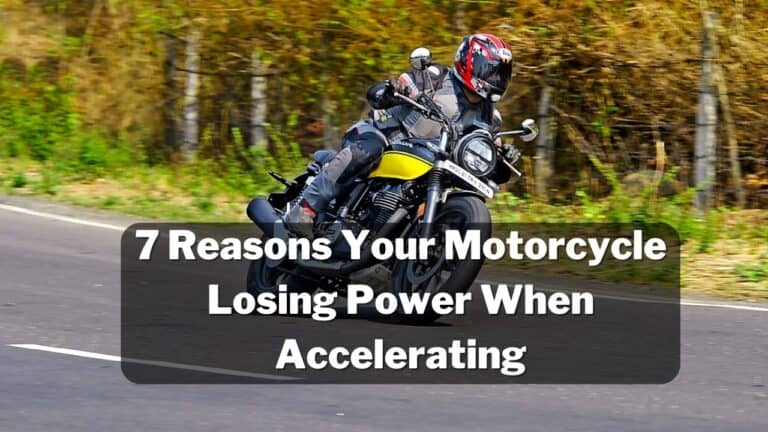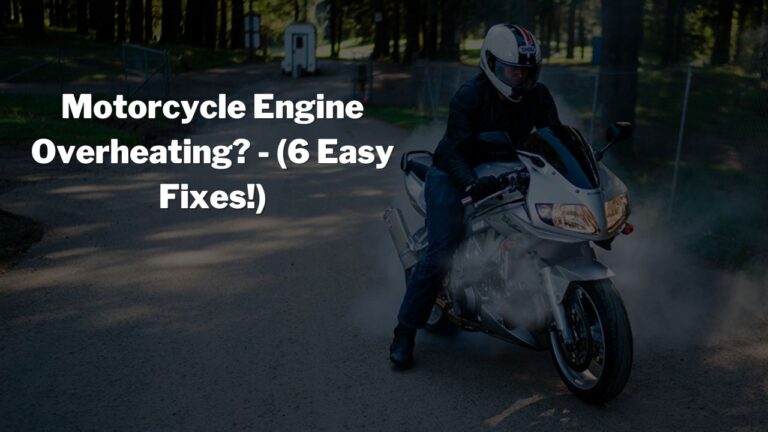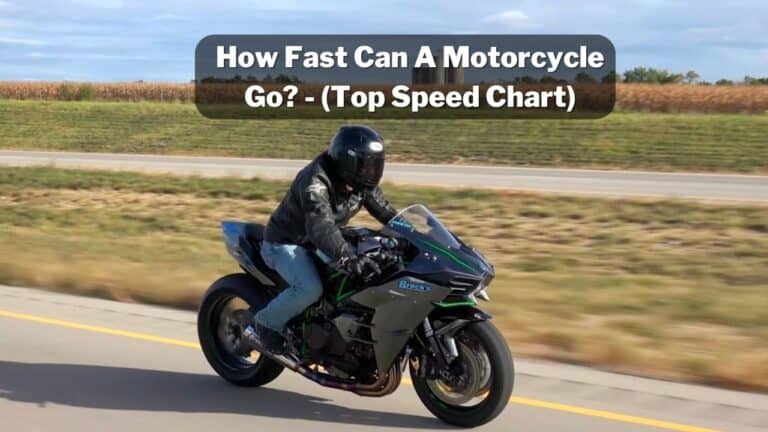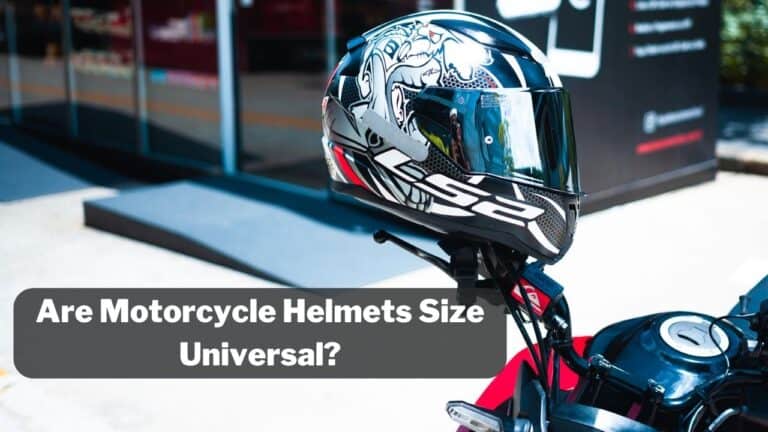How Many MPG Do Motorcycles Get? -(11 Surprising Facts!)
A motorcycle’s fuel consumption depends upon various factors like engine displacement, number of cylinders, motorcycle weight, tire pressure, riding style, environmental conditions, etc. Other factors like road conditions and riding speed also affect fuel economy.
So, how many MPG does a motorcycle get? A 250cc to 300cc motorcycle’s average fuel consumption is between 60 and 80 MPG, but some lightweight bikes with 50cc to 125cc engine size can reach 90 to 120 MPG. However, the power generation of these motorcycles isn’t high; hence, you have to compromise with the performance while riding.
Table of Contents
- 1 What Is The Average MPG of a Motorcycle?
- 2 Motorcycle MPG Chart
- 3 What Factors Affects Motorcycle Fuel Efficiency?
- 4 Internal Factors
- 5 External Factors
- 6 How Many MPG Does a 125cc Bike Get?
- 7 How Many MPG Does a 250cc Motorcycle Get?
- 8 How Many MPG Does a 500cc Motorcycle Get?
- 9 How Many MPG Does a 600cc Motorcycle Get?
- 10 How Many MPG Does a 750cc Motorcycle Get?
- 11 How Many MPG Does a 1000cc Motorcycle Get?
- 12 How Many MPG Does a 1200cc Motorcycle Get?
- 13 How Many MPG Does a 1500cc Motorcycle Get?
- 14 Conclusion
What Is The Average MPG of a Motorcycle?
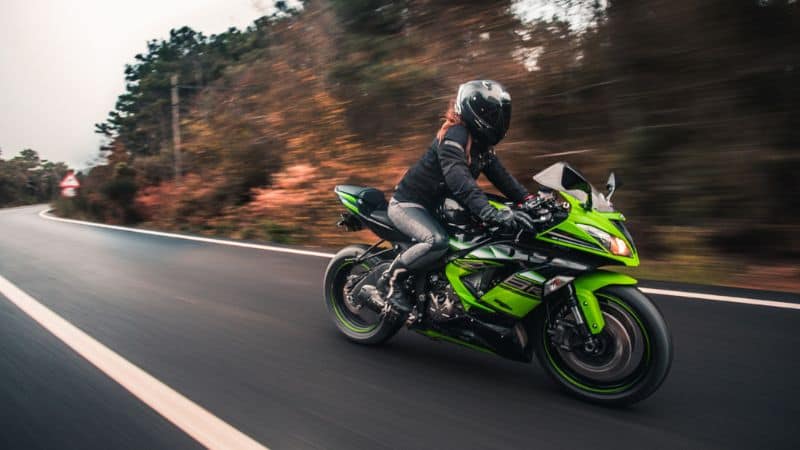
There is no exact calculation of the fuel consumption of any motorcycle because fuel economy depends on various external factors such as riders’ weight, tire pressure, riding style, road conditions, riding speed, and weather conditions like environmental temperature and wind pressure.
An average motorcycle gets around 40 to 80 MPG, excluding all external factors. However, lightweight dirt bikes with 50cc to 125cc engine displacement get around 90 to 120 MPG.
Whereas a sportbike with 650cc to 1200cc engine capacity can get 30 to 40 MPG, these bikes may offer high torque and amazing riding performance.
Motorcycle MPG Chart
I have prepared a motorcycle MPG chart of various engine displacements for your convenience and easy understanding. However, this is an estimated fuel economy chart of a motorcycle.
| Engine Displacement (cubic centimeters) | Average Miles Per Gallon |
| 50cc | 120-150 MPG |
| 100cc | 100-130 MPG |
| 125cc | 90-120 MPG |
| 250cc | 70-100 MPG |
| 350cc | 60-90 MPG |
| 500cc | 50-90 MPG |
| 650cc | 40-80 MPG |
| 750cc | 40-60 MPG |
| 1000cc | 30-60 MPG |
| 1200cc | 30-50 MPG |
| 1300cc | 30-40 MPG |
What Factors Affects Motorcycle Fuel Efficiency?
Multiple internal and external factors affect the fuel efficiency of a motorcycle. I’m listing some internal and external factors below-
Internal Factors
Here are some internal factors that affect the fuel efficiency of a motorcycle:
- Engine Displacement
- Number of Cylinders
- Kerb Weight
- Dynamics
- Tyre Design
1. Engine Displacement
An engine displacement is the distance the piston travels during a suction stroke. This denotes how much volume (cubic centimeters) of the air-fuel mixture goes into the engine cylinder. But, generally, people call it engine capacity.
Engine displacement is the most important factor that decides the fuel economy of a motorcycle. This is directly proportional to the power output from the engine.
Hence, higher engine displacement requires a higher volume of fuel-air mixture, which reduces the MPG of a motorcycle.
A 125cc engine capacity will always have higher MPG than a 500cc motorcycle, but the performance of a small engine capacity will be lesser.
2. Number of Cylinders
The number of cylinders also affects the miles per gallon of a motorcycle. A single-cylinder engine with the same engine capacity (let’s assume 800cc) will be less efficient than a V-twin (two-cylinder) engine.
It’s because complete combustion doesn’t happen in a large single-cylinder engine. The ideal displacement for a gasoline engine is 10 cm.
3. Curb Weight
The curb weight is the total weight of a motorcycle with full tank fuel and all standard equipment.
Heavyweight cruiser motorcycles have less fuel economy than lightweight sportbikes. That’s why sportbikes get higher MPG in comparison to cruiser bikes.
4. Dynamics
The design of motorcycles also affects fuel economy. An aerodynamically designed motorcycle will always get slightly higher MPG than a non-aerodynamically designed motorcycle. It happens because the motorcycle faces air drag at a higher speed.
5. Tire Design
A compact and lightweight tire faces less traction on the roads. But wider tires are more stable while swerving. So, a motorcycle with a wider tire will get less MPG compared to a compact and lighter tire.
External Factors
Here are some external factors that affect the fuel economy of a motorcycle:
- Rider’s Weight
- Wind Pressure
- Riding Style
- Road Conditions
- Tire Pressure
- Riding Speed
1. Rider’s Weight
Any external weight decreases the fuel economy of a motorcycle. It’s because the engine’s energy is also consumed in carrying the load. So, a lightweight rider always gets higher MPG than a heavyweight.
2. Wind Pressure
Air drag is applied to the motorcycle and the rider’s body when we ride the motorcycle. If the wind speed is high, it’ll prevent the motorcycle from moving, and the engine needs to produce extra power to overcome the air drag, which results in reduced fuel economy.
This is something similar to swimming against the water flow. If you swim against the water flow, you must put in extra effort.
3. Riding Style
Your riding style drastically affects a motorcycle’s fuel economy and average MPG. If you suddenly give the throttle, a rich air-fuel mixture is supplied to the combustion chamber, and the spark plug won’t generate enough spark for complete combustion, and unburnt fuel comes out from the exhaust.
Similarly, if you frequently press the brake paddle, much power is lost unnecessarily, decreasing fuel efficiency.
4. Road Conditions
The MPG of a motorcycle also depends upon the road conditions. For example, if you’re doing off-road rides, you must press brakes and clutches multiple times. As a result, your motorcycle will consume more fuel.
5. Tire Pressure
A motorcycle’s MPG also depends on the tire pressure. If the tire pressure is low, the friction between the tire and the road increases, which tries to stop the motorcycle at every point of contact. As a result, some power loss occurs, decreasing a motorcycle’s MPG.
6. Riding Speed
Riding a motorcycle at a higher speed decreases fuel economy because, at that time, our priority is higher power output.
Similarly, we don’t put our motorcycle in top gear at very slow speeds, which reduces the MPG.
The optimum motorcycle speed for higher MPG is 35 to 40 miles per hour (mph), but it’s unsafe for highways.
How Many MPG Does a 125cc Bike Get?
A 125cc motorcycle gets approximately 90-120 MPG. However, it depends upon various factors like the motorcycle’s weight, rider’s weight, road conditions, and riding style.
How Many MPG Does a 250cc Motorcycle Get?
A 250cc compact and lightweight motorcycle easily gets 70 to 100 MPG if you ride at a constant speed of 50 to 60 mph. However, you may get less MPG if you ride it on busy roads where you frequently use breaks and clutches.
How Many MPG Does a 500cc Motorcycle Get?
A 500cc sports bike can easily achieve 60 to 90 miles per gallon, but a cruiser motorcycle of similar engine size can get 50 to 60 MPG. Again, it depends upon road conditions, tire pressure, and riding style.
How Many MPG Does a 600cc Motorcycle Get?
Generally, 600cc supersport motorcycles on the freeway get approximately 40 to 50 MPG. However, a fuel-efficient motorcycle with a 600cc engine can get 40 to 80 MPG.
How Many MPG Does a 750cc Motorcycle Get?
If you’re also looking for a powerful motorcycle that gives ultimate performance and is fuel-efficient, then 750cc is a perfect category. 750cc motorcycles like Honda NC750X and BMW F750GS get around 60 to 70 miles per gallon on freeways.
How Many MPG Does a 1000cc Motorcycle Get?
Some 1000cc motorcycles like BMW S1000XR, Suzuki GSX-S1000F, and Yamaha YZFR1 get approximately 30 to 60 MPG, whereas Harley Davidson 1000cc cruiser bikes get around 40 to 45 MPG.
How Many MPG Does a 1200cc Motorcycle Get?
If you like higher engine capacity bikes, 1200cc to 1300cc is a good category. But, higher performance comes with the cost of fuel economy. A 1200cc motorcycle gets approximately 30 to 50 MPG in good road conditions.
How Many MPG Does a 1500cc Motorcycle Get?
A 1500cc motorcycle gives exceptional performance but has less fuel economy. On average, 1500cc motorcycles get approximately 25 to 40 MPG.
Conclusion
Most bikers prefer more than 500cc bikes, and the average fuel economy of 500cc motorcycles is 50 to 90 miles per gallon. However, some extremely fuel-efficient motorcycles with 50 to 125cc engine capacity get approximately 120 to 150 MPG.


